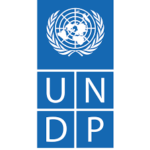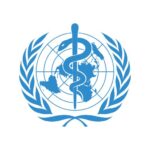Are you searching for public health and environmental health jobs in Malawi? Ntchito.com is your premier destination for the most current and active positions within Malawi’s vital public and environmental health sectors. Whether you’re interested in roles within hospitals, government health departments, non-governmental organizations (NGOs), research institutions, or international agencies in major cities like Lilongwe and Blantyre, our platform connects you with leading employers seeking dedicated and skilled health professionals. Advance your career by exploring diverse opportunities in epidemiology, health education, environmental health monitoring, policy development, and more within Malawi’s dynamic healthcare landscape. Additionally, enhance your expertise with Courses & Trainings (Funded) and gain practical experience through Internship Opportunities.


Community Development Officer





School Feeding Manager



Operations Manager




HEALTH SAFETY AND ENVIRONMENTAL OFFICER



Regional Director-Sub Saharan Africa


















Health Project Manager


FAQs for Public Health and Environmental Health Jobs in Malawi
What educational qualifications are required for Public Health and Environmental Health positions in Malawi?
Public Health and Environmental Health roles in Malawi typically require a strong educational foundation in relevant disciplines. Candidates should possess at least a bachelor’s degree in Public Health, Environmental Science, Epidemiology, Health Administration, or a related field from an accredited institution. For advanced positions, such as Public Health Managers, Environmental Health Officers, or Epidemiologists, a master’s degree or specialized certifications (e.g., Certified Public Health (CPH) or Environmental Health Specialist certification) may be necessary. Additionally, holding certifications from recognized institutions can significantly enhance a candidate’s qualifications and competitiveness in the job market. For those seeking further education, explore Bachelors Scholarship and Masters Scholarship opportunities to support your academic advancement.
Beyond formal education, practical experience is highly valued. Employers seek individuals with hands-on experience through internships, volunteer work, or previous employment in healthcare settings, environmental agencies, or public health programs. Participation in Internship Opportunities can significantly strengthen your application by providing real-world experience and networking opportunities within the public and environmental health sectors. Continuous professional development through Courses & Trainings (Funded) is also recommended to stay updated with the latest trends and best practices in public and environmental health.
How is the demand for Public Health and Environmental Health professionals evolving in Malawi’s healthcare system?
The demand for Public Health and Environmental Health professionals in Malawi is steadily increasing, driven by ongoing public health initiatives, environmental sustainability projects, and the need for effective disease prevention and health promotion strategies. As Malawi continues to address challenges such as infectious diseases, maternal and child health, and environmental hazards, the need for skilled professionals in these fields grows correspondingly. This trend is further fueled by government policies aimed at improving healthcare infrastructure, expanding health services, and promoting environmental conservation.
In addition to traditional roles in hospitals and government health departments, there is a growing demand for professionals in emerging areas such as digital public health, climate change mitigation, and sustainable development. The integration of technology into public health practices, including the use of data analytics and digital health tools, is creating new opportunities for those with expertise in these areas. Staying informed about these industry trends through resources like Job in Malawi and Energy Sector Jobs in Malawi can help candidates identify emerging opportunities and align their skills with market demands. Furthermore, the increasing focus on interdisciplinary approaches to health and environmental issues is opening new avenues for Public Health and Environmental Health professionals with diverse skill sets.
What key skills and competencies are essential for success in Public Health and Environmental Health roles in Malawi?
Success in Public Health and Environmental Health roles in Malawi requires a combination of technical expertise and soft skills. Key technical skills include proficiency in epidemiological research, data analysis, and health information systems. Candidates should be adept at designing and implementing public health programs, conducting environmental assessments, and utilizing statistical software for data interpretation. A strong understanding of health policy, regulatory frameworks, and ethical standards is essential for navigating and influencing public health initiatives effectively.
On the soft skills front, employers value excellent communication and interpersonal abilities, as Public Health and Environmental Health professionals often interact with diverse stakeholders, including community members, government officials, healthcare providers, and international partners. Critical thinking and problem-solving skills are crucial for developing innovative solutions to complex health and environmental challenges. Additionally, project management and organizational skills are important for planning, executing, and evaluating public health programs and environmental projects. Leadership and teamwork abilities are also essential for coordinating efforts across multidisciplinary teams and fostering collaborative environments. Enhancing these skills through Courses & Trainings (Funded) and Soft Skills Training can make candidates more attractive to potential employers and facilitate career advancement.
How can Public Health and Environmental Health professionals in Malawi advance their careers and stay competitive in the job market?
Career advancement for Public Health and Environmental Health professionals in Malawi involves a strategic combination of education, skill development, and networking. Pursuing advanced degrees or specialized certifications can open doors to higher-level positions and specialized roles within the public and environmental health sectors. Engaging in continuous learning through Training Opportunities helps professionals stay updated with the latest public health methodologies, environmental sustainability practices, and technological advancements in health information systems.
Networking is another critical component for career growth. Building connections with industry peers, attending public health and environmental conferences, and participating in professional associations can provide valuable insights and job leads. Additionally, gaining experience in diverse roles within public health and environmental health, such as working in different government departments, international organizations, or NGOs, can enhance a professional’s versatility and marketability. Utilizing resources like Consultancy Projects and Internship Opportunities can also provide practical experience and facilitate transitions into more advanced roles. Furthermore, developing a strong personal brand and leveraging online platforms, such as LinkedIn, can increase visibility and attract potential employers.
What are the common challenges faced by Public Health and Environmental Health professionals in Malawi, and how can they overcome them?
Public Health and Environmental Health professionals in Malawi often encounter challenges such as limited funding, resource constraints, and the complexities of addressing multifaceted health and environmental issues. Limited access to advanced medical equipment, inadequate funding for public health programs, and shortages of essential supplies can impact the effectiveness of health initiatives and environmental projects. Additionally, the complexities of addressing interconnected health and environmental issues, such as the impact of pollution on public health or the effects of climate change on disease patterns, require comprehensive and interdisciplinary approaches.
To overcome these challenges, Public Health and Environmental Health professionals can seek out continuous education and training to enhance their knowledge and skills in resource management, project implementation, and interdisciplinary collaboration. Engaging in Courses & Trainings (Funded) can provide access to the latest tools and methodologies in public and environmental health. Building a strong professional network through Networking Strategies for Job Seekers can offer support, resources, and collaborative opportunities to address funding and resource limitations. Additionally, advocating for better funding and support from government and private sectors can contribute to improving the overall infrastructure and resources available for public and environmental health initiatives in Malawi. Leveraging technology and innovative health solutions, such as telehealth services and mobile health applications, can also help mitigate resource constraints and enhance the reach and impact of health programs.